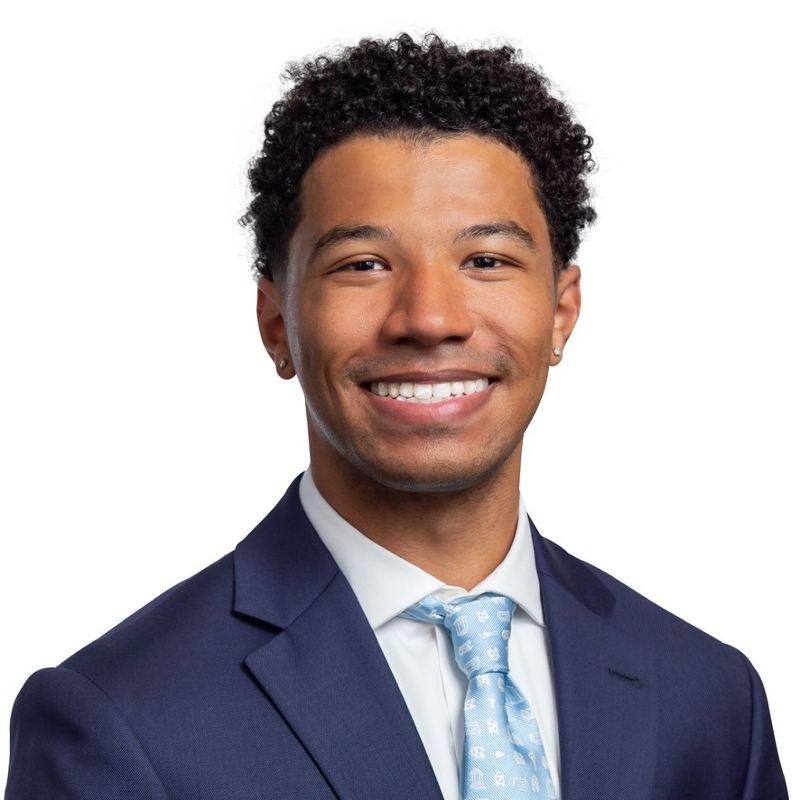Black Men in Psych: Kenan Sayers
November 30, 2022 - Shelly DeJong

According to a 2019 American Psychological Association report, Black men are underrepresented in the field of Psychology. The report indicates only 4.53% of the U.S. psychology workforce is Black or African American and only 30% of all psychologists are male. The same APA report shows that these statistics have stayed consistent over the last decade.
When Kenan Sayers, a first-year MSU psychology graduate student in the Clinical Science area, heard about this as a high schooler, he knew immediately that he was going to become a psychologist.
“For some people, that might deter them, and that’s understandable, too. But for me, that’s one reason that drew me to psychology because I knew that I could potentially make a difference beyond just the title of being a psychologist. That’s why even though I hadn’t taken a psychology class in high school, I immediately came into undergrad as a psychology major.”
In early 2022, Sayers was approached by Desmond Warren, a clinical neuropsychology Ph.D. student at Georgia State University, to see what they could do together to help show representation for the next generation of Black men. With a handful of other graduate students, they formed Black Men in Psych. This group works to connect Black men in psychology and celebrate their successes.
“People don’t see themselves being psychologists because they don’t see people who look like them as psychologists,” said Sayers. “We want to show that there are Black men in psychology and that they are thriving.”
Sayers grew up outside of Philadelphia, Pennsylvania, and went to The University of North Carolina at Chapel Hill for undergrad. As an undergrad, Sayers noted that he did not have a single psychology class that was taught by a man of color.
“For someone looking at career options and seeing a predominately white space and not a lot of men of color, especially because the stigma of mental health in the Black community is very strong, it can be a big deterrent,” said Sayers. He’s thankful to have had mentors in his high school that helped show him what was possible.
The Black Men in Psych organization is in its early stages, but they are eager to see where it goes. They want to get Black men and adolescents interested in psychology, explore psychology, and know that there is a place for them there if they want. Over the summer, they spoke to a psychology class at Morehouse. They hope to hold events and conferences someday in the future.
For now, they are grateful for the community and support that they’ve found while they pursue their graduate degrees.
Sports and Anxiety
Sayers’ own research interests look at the intersection of exercise and mental health as well as mental health and illness in the athlete populations. His advisor, Dr. Jason Moser, runs the Clinical Psychophysiology Lab at MSU. Dr. Moser’s interests in integration physiology and mental health were a great pairing for Sayers. Together their research will use EEG technology to see how acute bouts of exercise impact cognitive reappraisal in high-anxiety individuals.
“Some individuals have catastrophic thinking that gets triggered by exercise. Like, if their heart is racing from exercise, they may view it as a heart attack,” said Sayers. “We know that exercise impacts anxiety sensitivity, but I want to study to see how that happens. How can exercise help individuals redefine the stimuli?”
He’ll also be continuing to work on a project that he started as an undergrad in which he looks at sport-related performance anxiety in collegiate athletes. As a former athlete in high school, he can relate to the specific pressures that athletes face. He’s also a certified personal trainer so he’s interested in why some people start exercising and why they may stop.
“I love being able to understand why people do things and why people don’t do things,” said Sayers. “I love that psychology can help figure out how to alleviate distress for people. Psychology for me taps into that aspect of human behavior that I’m really interested in.”
He’s also interested in helping to educate athletes on how mental health can be impacting them—and to help show that help is available to them. The “invisible injury” of mental health can impact athletes and yet, people might not recognize it in themselves because it isn’t as obvious as a physical injury.
“It’s at a pivotal point right now in sports. Athletes are breaking the stigma on mental health and talking about it more,” said Sayers. “I’m excited to be in this field and see these important changes taking place.”

